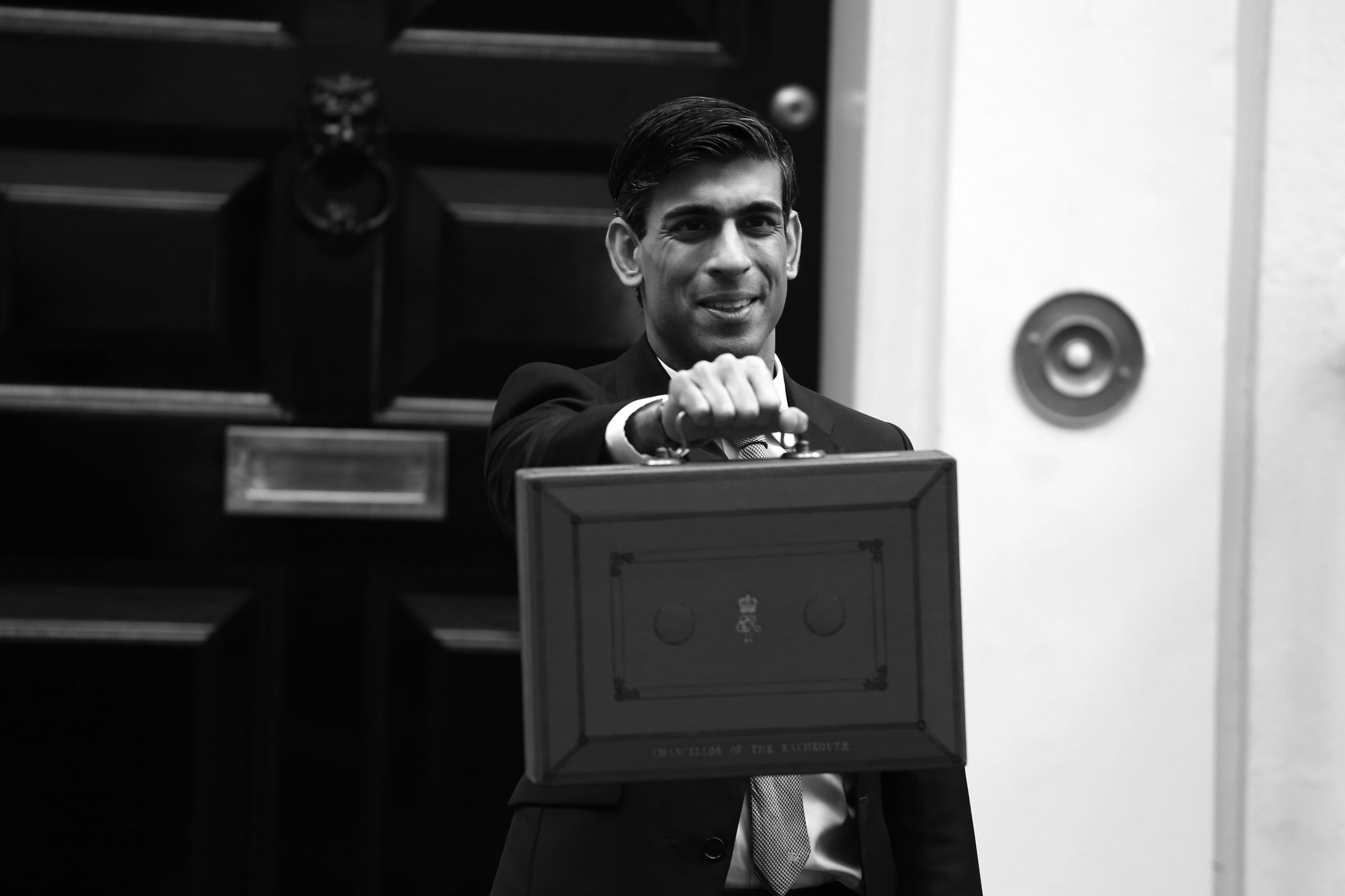The dividing line between Sunak and Truss has been economic policy. Sunak has tried to paint himself as the frugal guardian of the nation’s wealth, with the implication that Truss has got it wrong. The problem is, Rishinomics does not work.
A generous interpretation of his mistaken economic philosophy is that he is caught in the vice of Treasury Groupthink. A less generous interpretation is that he has not got a clue. I am drawn to the latter.
“He has forgotten that it was his policies which resulted in national debt accelerating to nearly 100% of GDP”
He talks about his desire to leave sound finances for our children and theirs in turn. He has forgotten that it was his policies which resulted in national debt accelerating to nearly 100% of GDP, with an increase of £500 billion or 33%. In just two years he added a debt burden equivalent to the entire national debt taken on in all of history until 2005!
He talks about the need to maintain high tax rates to avoid stoking inflation. He has forgotten that he took taxes to a post-war high before inflation raised its ugly head. His high tax rates did not head off inflation, so why would they help curb it now?
Indeed, if taxes on goods are reduced, the cost of these goods reduces. Inflation does not increase, it reduces. There are many taxes which fall into this category: VAT, green taxes on domestic fuel, tax on fuel, tax on alcohol and cigarettes, and for those familiar with the property market, stamp duty. Raising this latter property tax was one of his predecessor’s penchants, who hiked it claiming property prices would reduce. It had no such effect. An increase in stamp duty adds to the price of a property and reduces liquidity in the market, in turn further driving up prices.
And with his high borrowing and spending, he has delivered no growth in the economy. Indeed, in 12 years of nominally Tory government, GDP has increased by only 10%. In dollar terms it has not budged, suggesting all growth has come at the expense of sterling. The US economy, by contrast, has grown by 50% over the same period.
Sunak is ideologically an interventionist. He thinks he knows better. That is why he has borrowed, taxed and spent. It is for this reason, instead of cutting green taxes on domestic fuel, he chose to implement a complex means tested handout to the electorate. Cutting the tax would have been simple. He did not do it. Now, reluctantly, after Truss showed him the way, he has U-turned on it.
And, in a bid to steal Truss’s clothes, he has gone further and promised to cut the basic rate of income tax by 2029. The commitment is on the never never, but flies in the face of his freezing of tax thresholds, dragging lower earners into higher bands. He is all over the place on tax because, in truth, he does not wish to reduce it.
His flawed ideology is probably best revealed by his attitude to corporation tax. After two years of intermittent lockdowns and the private sector being repeatedly kicked in the shins, he wants to raise this by a whopping 30%, from 19% to 25%. Sure, he intends to fine tune it to relieve capital investments and small companies, but this is just more Rishi micromanagement. The tax should be slashed and companies left to decide how best to deploy their capital.
He has also signed up to a global minimum corporation tax rate of 15%. There can be no benefit in this artificial self-imposed restraint.
Osborne borrowed, taxed and spent to save the banks, thereby devaluing the pound, and did nothing to head off the massive asset inflation it engendered, and which robbed the working and middle classes of getting on the property ladder.
Sunak has borrowed, taxed and spent to finance lockdowns, thereby again devaluing the pound, breaking supply chains and fuel reserves, and has done nothing to head off the massive consumer price inflation. The working and middle classes are yet again paying the price.
Truss gets it. She knows high taxes will maintain high prices and cause ever larger wage demands; in turn embedding inflation into the system. It may already be too late to undo the damage done by Sunak, but she must try.
Suggesting Truss’s proposed tax cuts would be unfunded and inflationary reveals a deep misunderstanding of how we got into this mess and what we must do to get out of it.
The only way out is by growing GDP so that debt becomes a smaller proportion of it. Debt at government level rarely ever reduces in nominal terms. Austerity and high taxes are no solution. That ends up with the death of the goose – and make no mistake, the British economic goose is on its back.
There is another fallacy at the heart of Rishinomics. Very nearly half our national debt is owned by the Bank of England. Servicing that debt may show up in the numbers, but it is false accounting. The lefthand is paying the right. On a consolidated balance sheet basis, our net national debt is well within manageable parameters.
So Truss is absolutely right to wish to cut taxes on goods to reduce inflation. She is absolutely right to wish to cut taxes on businesses to boost growth and GDP. The country can afford to do so. Indeed, it cannot afford not to do so.







